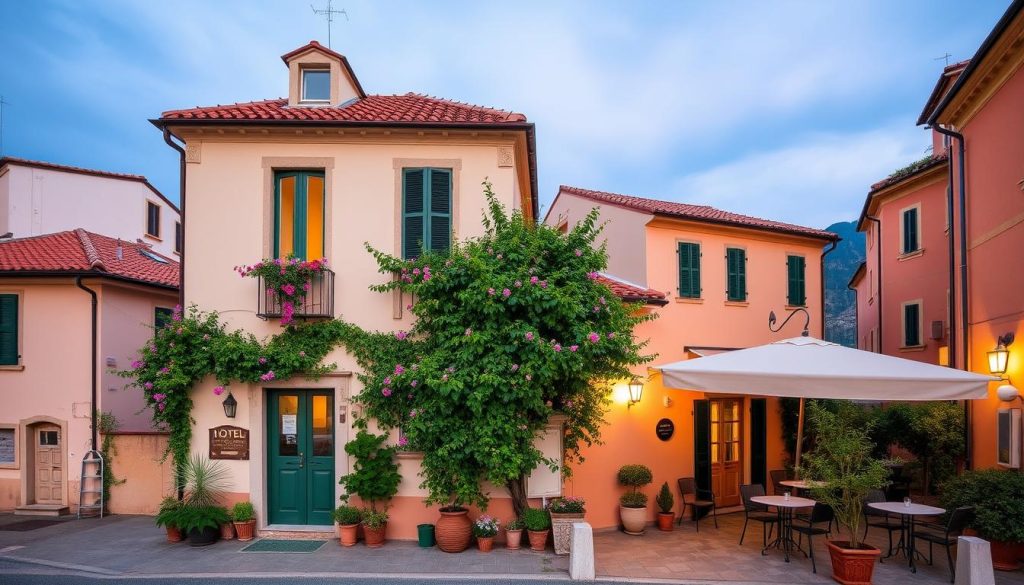Italy’s vibrant economy, rich cultural heritage, and strategic location in Europe make it an attractive destination for foreign entrepreneurs. Whether you’re drawn to the country’s renowned food scene, booming tourism industry, or artisanal traditions, Italy offers diverse opportunities for small business ventures. However, navigating the Italian business landscape as a foreigner requires careful planning and local knowledge.
In this comprehensive guide, we’ll explore the top 10 small business ideas in Italy for foreigners, comparing startup costs, profitability trends, legal requirements, and regional demand. Each business idea is analyzed based on real market data and feedback from successful foreign entrepreneurs who have established thriving businesses across Italy.
Quick Comparison: Top 10 Small Business Ideas in Italy for Foreigners
Before diving into the details of each business opportunity, let’s compare the key metrics across all ten options. This table provides a snapshot of startup costs, average monthly revenue, legal complexity, and customer demand to help you quickly identify which opportunities align with your goals and resources.
| Business Idea | Startup Costs (€) | Avg. Monthly Revenue (€) | Legal Complexity (1-5) | Customer Demand (1-5) | Best Region |
| Food & Culinary Tours | 5,000-15,000 | 8,000-25,000 | 3 | 5 | Tuscany, Sicily, Rome |
| Language School | 10,000-30,000 | 5,000-20,000 | 2 | 4 | Milan, Rome, Florence |
| Boutique Hotel/B&B | 150,000-500,000 | 15,000-50,000 | 4 | 5 | Amalfi Coast, Venice, Cinque Terre |
| Digital Marketing Agency | 2,000-10,000 | 5,000-30,000 | 2 | 4 | Milan, Rome, Bologna |
| Artisan Craft Shop | 8,000-25,000 | 3,000-15,000 | 2 | 3 | Florence, Venice, Sicily |
| Import/Export Business | 10,000-50,000 | 8,000-40,000 | 4 | 4 | Milan, Naples, Genoa |
| Eco-Tourism Venture | 20,000-80,000 | 6,000-25,000 | 3 | 4 | Tuscany, Umbria, Sardinia |
| Wine Bar/Enoteca | 30,000-100,000 | 8,000-30,000 | 3 | 4 | Piedmont, Tuscany, Veneto |
| Tech Startup | 15,000-100,000 | Variable | 3 | 4 | Milan, Rome, Turin |
| Wellness/Spa Center | 50,000-200,000 | 10,000-40,000 | 3 | 3 | Tuscany, Lake Como, Ischia |
Note: Legal complexity is rated on a scale of 1-5, with 5 being the most complex. Customer demand is also rated on a scale of 1-5, with 5 representing the highest demand. These ratings are based on current market research and may vary depending on specific locations and economic conditions.
1. Food & Culinary Tours

Italy’s renowned culinary heritage makes food tours one of the most viable small business ideas in Italy for foreigners. With over 94 million tourists visiting Italy annually (pre-pandemic), the demand for authentic food experiences continues to grow. Food tours allow entrepreneurs to combine their passion for Italian cuisine with a profitable business model.
Key Features & Specifications
Business Specifications
- Startup costs: €5,000-15,000
- Monthly revenue potential: €8,000-25,000
- Required permits: Tour operator license, food handling certification
- Seasonal demand: High (April-October), Moderate (November-March)
- Staff requirements: 1-3 (guides with food knowledge)
Success Factors
- Fluency in English and Italian
- Deep knowledge of local cuisine and producers
- Strong relationships with local food businesses
- Effective online marketing presence
- Unique tour concepts beyond standard offerings
Advantages
- Low initial investment compared to other tourism businesses
- High profit margins (40-60%)
- Ability to start small and scale gradually
- Year-round potential in major cities
- Opportunity to build relationships with local producers
Challenges
- Seasonal fluctuations in tourist destinations
- Competition in popular areas
- Need for consistent quality control
- Dependence on relationships with local vendors
- Weather-dependent for outdoor components
“Starting our food tour business in Rome was the best decision we made. With an initial investment of just €8,000, we were profitable within three months. The key was creating unique experiences that went beyond the typical tourist spots and really showcased authentic Roman cuisine.”
Regional Opportunity: While Rome, Florence, and Venice have saturated food tour markets, emerging destinations like Bologna (Italy’s food capital), Sicily, and Puglia offer less competition and growing tourist interest in authentic culinary experiences.
2. Language School or Tutoring Service

With Italy’s growing expatriate community and the constant influx of international students, language schools offer a promising business opportunity for foreigners with teaching experience. Italian language learning is in high demand among tourists, business professionals, and expatriates, while English language instruction remains sought after by locals.
Key Features & Specifications
Business Specifications
- Startup costs: €10,000-30,000
- Monthly revenue potential: €5,000-20,000
- Required qualifications: TEFL/CELTA for English teaching
- Seasonal demand: Consistent with peaks (September, January)
- Staff requirements: 2-5 qualified teachers
Success Factors
- Teaching qualifications and experience
- Specialized course offerings (business Italian, etc.)
- Modern teaching methodologies
- Partnerships with local businesses and schools
- Online and in-person learning options
Advantages
- Relatively straightforward legal requirements
- Can start small (tutoring) and expand gradually
- Stable year-round demand in major cities
- Multiple revenue streams (group classes, private lessons, online)
- Low overhead if operating online or from shared spaces
Challenges
- Finding qualified native-speaking teachers
- Competition from established language schools
- Need for continuous curriculum development
- Marketing to reach target student demographics
- Administrative workload (scheduling, payments)
“We started with just two classrooms and three teachers in Milan. Five years later, we have 15 teachers and over 200 regular students. The key was offering specialized business Italian courses that appealed to international professionals working with Italian companies.”
Business Tip: Consider offering specialized language courses for specific industries (fashion, culinary, hospitality) to differentiate your school from competitors and command premium pricing.
Need Help Starting Your Italian Business Venture?
Our team of experts specializes in helping foreigners navigate the Italian business landscape. Get a free 30-minute consultation to discuss your specific business idea and receive personalized guidance.
3. Boutique Hotel or B&B

Italy’s tourism industry creates excellent opportunities for boutique accommodations that offer authentic experiences. While requiring significant initial investment, boutique hotels and B&Bs can generate substantial returns, especially in popular tourist destinations or areas with unique appeal.
Key Features & Specifications
Business Specifications
- Startup costs: €150,000-500,000+
- Monthly revenue potential: €15,000-50,000+
- Required permits: Hospitality license, health & safety certifications
- Seasonal demand: Varies by location (high season can be 3-6 months)
- Staff requirements: 3-10 depending on size and services
Success Factors
- Prime location or unique property features
- Distinctive design and atmosphere
- Exceptional customer service
- Effective online presence and booking systems
- Additional revenue streams (restaurant, experiences)
Advantages
- High revenue potential in popular destinations
- Property value appreciation over time
- Opportunity to create a truly unique business
- Can combine with other business concepts (restaurant, tours)
- Potential for year-round income in major cities
Challenges
- High initial investment and ongoing maintenance costs
- Complex regulations and permitting process
- Staffing challenges, especially in seasonal locations
- Intense competition in popular tourist areas
- Seasonal fluctuations affecting cash flow
“We purchased a historic building in Tuscany and converted it into a 12-room boutique hotel. The renovation cost €320,000, but we reached profitability within two years. The key was creating an authentic experience that couldn’t be found at chain hotels, including cooking classes and vineyard tours.”
Location Insight: While the Amalfi Coast, Venice, and Florence have saturated accommodation markets, emerging destinations like Puglia, Sicily’s eastern coast, and the Langhe wine region offer better value properties with growing tourism.
4. Digital Marketing Agency

Italy’s business landscape is increasingly digital, yet many traditional Italian companies lack expertise in online marketing. This creates an opportunity for foreign entrepreneurs with digital skills to help local businesses improve their online presence, particularly those in tourism, fashion, and food sectors targeting international customers.
Key Features & Specifications
Business Specifications
- Startup costs: €2,000-10,000
- Monthly revenue potential: €5,000-30,000
- Required permits: Business registration, VAT number
- Seasonal demand: Consistent year-round
- Staff requirements: 1-5 (can start solo and scale)
Success Factors
- Digital marketing expertise and portfolio
- Understanding of Italian market and consumer behavior
- Language skills (Italian + English minimum)
- Network of local business contacts
- Specialized industry knowledge (tourism, fashion, etc.)
Advantages
- Low startup costs and overhead
- Can operate remotely or from a small office
- Scalable business model
- Not location-dependent (can serve clients nationwide)
- Recurring revenue potential through retainer contracts
Challenges
- Building credibility with traditional Italian businesses
- Cultural differences in marketing approaches
- Need to stay current with digital marketing trends
- Managing client expectations and results
- Potential language barriers with local clients
“We started our digital marketing agency in Milan with just €5,000 and a focus on helping Italian fashion brands reach international markets. Within 18 months, we had 12 retainer clients and were generating €18,000 monthly. The demand for digital expertise from someone who understands both Italian and international markets is substantial.”
Niche Opportunity: Consider specializing in helping Italian businesses with international e-commerce expansion, as many traditional Italian brands struggle with effective online sales strategies for global markets.
5. Artisan Craft Shop

Italy’s rich tradition of craftsmanship creates opportunities for artisan businesses that combine production and retail. Foreign entrepreneurs with craft skills can establish workshops producing high-quality handmade goods that appeal to both tourists seeking authentic souvenirs and locals appreciating traditional craftsmanship.
Key Features & Specifications
Business Specifications
- Startup costs: €8,000-25,000
- Monthly revenue potential: €3,000-15,000
- Required permits: Business registration, artisan certification
- Seasonal demand: High during tourist season
- Staff requirements: 1-3 (can start solo)
Success Factors
- Unique, high-quality products
- Craftsmanship skills and authenticity
- Strategic location with foot traffic
- Online sales channels to reach global market
- Storytelling and brand development
Advantages
- Appreciation for handmade, authentic products
- Ability to command premium prices
- Multiple revenue streams (retail, workshops, online)
- Fulfilling creative expression
- Strong connection to Italian cultural heritage
Challenges
- High competition in tourist areas
- Seasonal fluctuations in foot traffic
- Production capacity limitations
- Balancing production time with retail operations
- High retail space costs in prime locations
“I opened my ceramic workshop in Florence with €15,000 in savings. The first year was challenging, but developing relationships with local hotels and restaurants for custom pieces provided stable income alongside tourist sales. Now in our fourth year, we generate around €8,000 monthly with our workshop and online store.”
Business Strategy: Consider a hybrid model combining production studio, retail space, and workshops/classes for tourists. This creates multiple revenue streams and offers visitors an interactive experience they’re willing to pay premium prices for.
6. Import/Export Business

Italy’s renowned products—from food and wine to fashion and design—create excellent opportunities for import/export businesses. Foreign entrepreneurs can leverage their international connections to help Italian producers reach new markets or bring international products to Italian consumers.
Key Features & Specifications
Business Specifications
- Startup costs: €10,000-50,000
- Monthly revenue potential: €8,000-40,000
- Required permits: Import/export license, VAT number, customs registration
- Seasonal demand: Varies by product category
- Staff requirements: 1-5 depending on volume
Success Factors
- Strong network in target markets
- Understanding of international shipping logistics
- Knowledge of import/export regulations
- Relationships with quality producers
- Effective marketing and distribution channels
Advantages
- Leverages Italy’s strong reputation for quality products
- Can start with minimal infrastructure (office only)
- Scalable business model
- Opportunity to work with premium Italian brands
- Not dependent on local market conditions only
Challenges
- Complex customs regulations and paperwork
- Shipping logistics and quality control
- Currency fluctuations affecting margins
- Building trust with producers and buyers
- International market competition
“We started exporting artisanal Italian food products to Scandinavian countries with an investment of €25,000. The first six months were challenging as we navigated customs regulations, but once we established our logistics chain, growth was steady. Three years in, we work with 28 producers and generate €30,000 monthly in revenue.”
Product Focus: Consider specializing in niche, high-margin products with growing international demand, such as natural wines, organic olive oils, or artisanal ceramics, rather than competing with mass-market Italian exports.
7. Eco-Tourism Venture

With growing interest in sustainable travel, eco-tourism ventures offer promising opportunities in Italy’s diverse natural landscapes. From hiking tours in national parks to farm stays in rural areas, eco-tourism businesses cater to travelers seeking authentic experiences with minimal environmental impact.
Key Features & Specifications
Business Specifications
- Startup costs: €20,000-80,000
- Monthly revenue potential: €6,000-25,000
- Required permits: Tourism operator license, environmental certifications
- Seasonal demand: High (April-October), Low (November-March)
- Staff requirements: 2-6 depending on activities offered
Success Factors
- Knowledge of local ecology and conservation
- Sustainable business practices
- Unique experiences not available elsewhere
- Partnerships with local communities
- Effective digital marketing to target eco-conscious travelers
Advantages
- Growing market segment with higher spending customers
- Less competition than traditional tourism
- Potential for EU grants and sustainability incentives
- Opportunity to operate in less expensive rural areas
- Positive environmental and social impact
Challenges
- Seasonal nature of outdoor activities
- Weather dependency for many experiences
- Need for specialized knowledge and certifications
- Balancing accessibility with environmental protection
- Higher marketing costs to reach niche audience
“We invested €45,000 to start our eco-tourism company in Sardinia, offering hiking, kayaking, and wildlife experiences. The business broke even in the second season, and we now host over 1,200 guests annually with a focus on sustainable, small-group experiences that showcase the island’s natural beauty while supporting conservation efforts.”
Regional Focus: While Tuscany has many eco-tourism ventures, areas like Abruzzo (with its three national parks), Basilicata, and Calabria offer stunning natural landscapes with far less competition and lower property costs.
8. Wine Bar/Enoteca

Italy’s world-renowned wine culture creates excellent opportunities for wine-focused businesses. A wine bar or enoteca can combine retail sales with on-premise consumption, offering customers the chance to discover Italian wines through tastings and food pairings.
Key Features & Specifications
Business Specifications
- Startup costs: €30,000-100,000
- Monthly revenue potential: €8,000-30,000
- Required permits: Food and beverage license, alcohol license
- Seasonal demand: Consistent with tourist season peaks
- Staff requirements: 2-5 depending on size
Success Factors
- Wine knowledge and sommelier skills
- Relationships with quality wine producers
- Strategic location with foot traffic
- Curated selection of wines and complementary foods
- Creating an inviting atmosphere and experience
Advantages
- High margins on wine by the glass
- Multiple revenue streams (on-premise, retail, tastings)
- Appeals to both tourists and locals
- Potential for wine club and subscription models
- Less complex than full-service restaurants
Challenges
- Competition in popular areas
- Inventory management and storage requirements
- Need for specialized knowledge
- Alcohol licensing regulations
- Balancing retail and on-premise service
“We opened our enoteca in Rome with €60,000, focusing on natural wines from small producers across Italy. By offering guided tastings and creating a warm, unpretentious atmosphere, we attracted both curious tourists and local wine enthusiasts. Three years in, we generate €15,000 monthly with a 40% profit margin.”
Differentiation Strategy: Consider focusing on a specific niche such as natural wines, wines from a particular region, or pairing wines with artisanal foods to stand out from generic wine bars and attract a dedicated clientele.
9. Tech Startup

Italy’s growing tech ecosystem, particularly in cities like Milan, Rome, and Turin, creates opportunities for innovative startups. The Italian government offers various incentives for new tech companies, including tax breaks and simplified procedures for innovative startups.
Key Features & Specifications
Business Specifications
- Startup costs: €15,000-100,000+
- Monthly revenue potential: Variable (depends on business model)
- Required registrations: Innovative startup status for benefits
- Seasonal demand: Consistent year-round
- Staff requirements: 2-10 depending on concept
Success Factors
- Innovative solution to market needs
- Technical expertise and development capabilities
- Access to startup ecosystem and mentorship
- Ability to secure funding (angel, VC, grants)
- Scalable business model
Advantages
- Tax incentives for innovative startups
- Growing investor interest in Italian tech
- Access to EU market and funding
- Lower development costs than Northern Europe
- High growth and exit potential
Challenges
- Less developed venture capital ecosystem
- Bureaucratic processes despite incentives
- Recruiting technical talent can be competitive
- Need for significant capital for scaling
- Longer sales cycles with traditional industries
“We launched our travel tech startup in Milan with €50,000 in initial funding. Italy’s ‘Startup Act’ provided significant tax advantages and simplified procedures. After 18 months, we secured €300,000 in seed funding from Italian and German investors. The key was solving a real problem in the tourism industry while leveraging Italy’s strong reputation in hospitality.”
Sector Opportunity: Tech startups addressing Italy’s traditional industries (fashion, food, tourism, manufacturing) with innovative solutions have particular advantages due to proximity to potential clients and industry knowledge.
10. Wellness and Spa Center

Italy’s thermal springs and wellness traditions create opportunities for spa and wellness businesses. From urban day spas to destination wellness retreats, these businesses cater to both tourists seeking relaxation and locals interested in health and self-care.
Key Features & Specifications
Business Specifications
- Startup costs: €50,000-200,000+
- Monthly revenue potential: €10,000-40,000
- Required permits: Health and safety certifications, business license
- Seasonal demand: Year-round with tourist season peaks
- Staff requirements: 5-15 depending on services
Success Factors
- Quality facilities and equipment
- Skilled therapists and practitioners
- Unique treatments or wellness philosophy
- Attractive, tranquil environment
- Effective marketing to target demographics
Advantages
- High-margin services and products
- Potential for membership and package models
- Appeals to both tourists and locals
- Multiple revenue streams (treatments, retail, classes)
- Growing interest in wellness and self-care
Challenges
- High initial investment for facilities
- Staffing with qualified practitioners
- Maintaining consistent service quality
- Competition in tourist areas
- Ongoing facility maintenance costs
“We invested €120,000 to create our wellness center in Tuscany, focusing on combining traditional Italian thermal treatments with modern wellness approaches. After a challenging first year, we developed corporate wellness programs for local businesses that provided steady income alongside tourist clients. Now in our fifth year, we generate €25,000 monthly with a 35% profit margin.”
Location Strategy: Consider locations near natural thermal springs in less developed areas like Lazio, Emilia-Romagna, or Abruzzo, where property costs are lower but the therapeutic value of the waters creates a unique selling proposition.
How to Get Started with Your Italian Business Venture
Starting a business in Italy as a foreigner requires careful planning and understanding of local regulations. Here are the essential steps to turn your business idea into reality:
1. Legal Structure & Registration
- Choose the appropriate business structure (SRL, SRLS, etc.)
- Obtain a tax identification number (Codice Fiscale)
- Register with the Chamber of Commerce
- Apply for necessary licenses and permits
- Open an Italian business bank account
2. Market Research & Planning
- Conduct thorough market analysis
- Identify target customers and competition
- Develop a detailed business plan
- Secure necessary funding
- Create marketing and sales strategies
3. Operational Setup
- Secure business premises
- Hire and train staff
- Establish supplier relationships
- Implement accounting and management systems
- Develop online presence and marketing materials
Important: Non-EU citizens may need to obtain a specific type of visa to start a business in Italy. The “Self-Employment Visa” (Visto per Lavoro Autonomo) is typically required, and the application process can take several months. We recommend consulting with an immigration attorney specializing in business immigration to Italy.
Ready to Start Your Italian Business Journey?
Our team of experts specializes in helping foreign entrepreneurs navigate the complexities of starting businesses in Italy. From legal structure selection to market analysis and operational setup, we provide comprehensive support tailored to your specific business idea.
Schedule a free 30-minute consultation to discuss your business concept and receive personalized guidance on next steps.
Frequently Asked Questions
What are the main legal requirements for foreigners starting a business in Italy?
Foreigners starting a business in Italy need to obtain a tax identification number (Codice Fiscale), register with the Chamber of Commerce, and secure appropriate business licenses. Non-EU citizens typically require a self-employment visa (Visto per Lavoro Autonomo) and residency permit. The specific requirements vary depending on your nationality, business type, and location within Italy.
How much capital is required to start a business in Italy?
The minimum capital requirements depend on your chosen business structure. For a Simplified Limited Liability Company (SRLS), you need as little as €1, while a standard Limited Liability Company (SRL) requires €10,000 (though you can start with €2,500 if certain conditions are met). Beyond legal minimums, actual startup costs vary widely by business type, from €2,000 for a digital service to €150,000+ for hospitality ventures.
Which regions in Italy offer the best business opportunities for foreigners?
Major cities like Milan, Rome, and Florence offer established markets with high tourist volumes but also higher costs and competition. Emerging regions like Puglia, Sicily, and Le Marche provide lower entry costs and growing tourism. Northern regions (Lombardy, Veneto) have stronger economies and infrastructure, while central Italy (Tuscany, Umbria) offers tourism potential with moderate costs. The ideal region depends on your specific business type, target market, and personal preferences.
What are the tax implications for foreign business owners in Italy?
Italy’s corporate tax rate is approximately 24%, with additional regional taxes of 3.9-4.82%. VAT (IVA) is typically 22% for most goods and services, with reduced rates for certain categories. Foreign business owners may benefit from tax treaties preventing double taxation with their home countries. Italy also offers tax incentives for innovative startups and businesses in certain regions. We recommend working with an Italian commercialista (accountant) familiar with international tax matters.
How important is speaking Italian for running a business in Italy?
While English is widely spoken in tourism and international business sectors, speaking Italian provides significant advantages when dealing with local authorities, suppliers, and customers. For businesses targeting Italian consumers or requiring frequent interaction with local bureaucracy, Italian language skills are highly valuable. At minimum, having an Italian-speaking partner, employee, or consultant is recommended to navigate administrative requirements and build local relationships.









